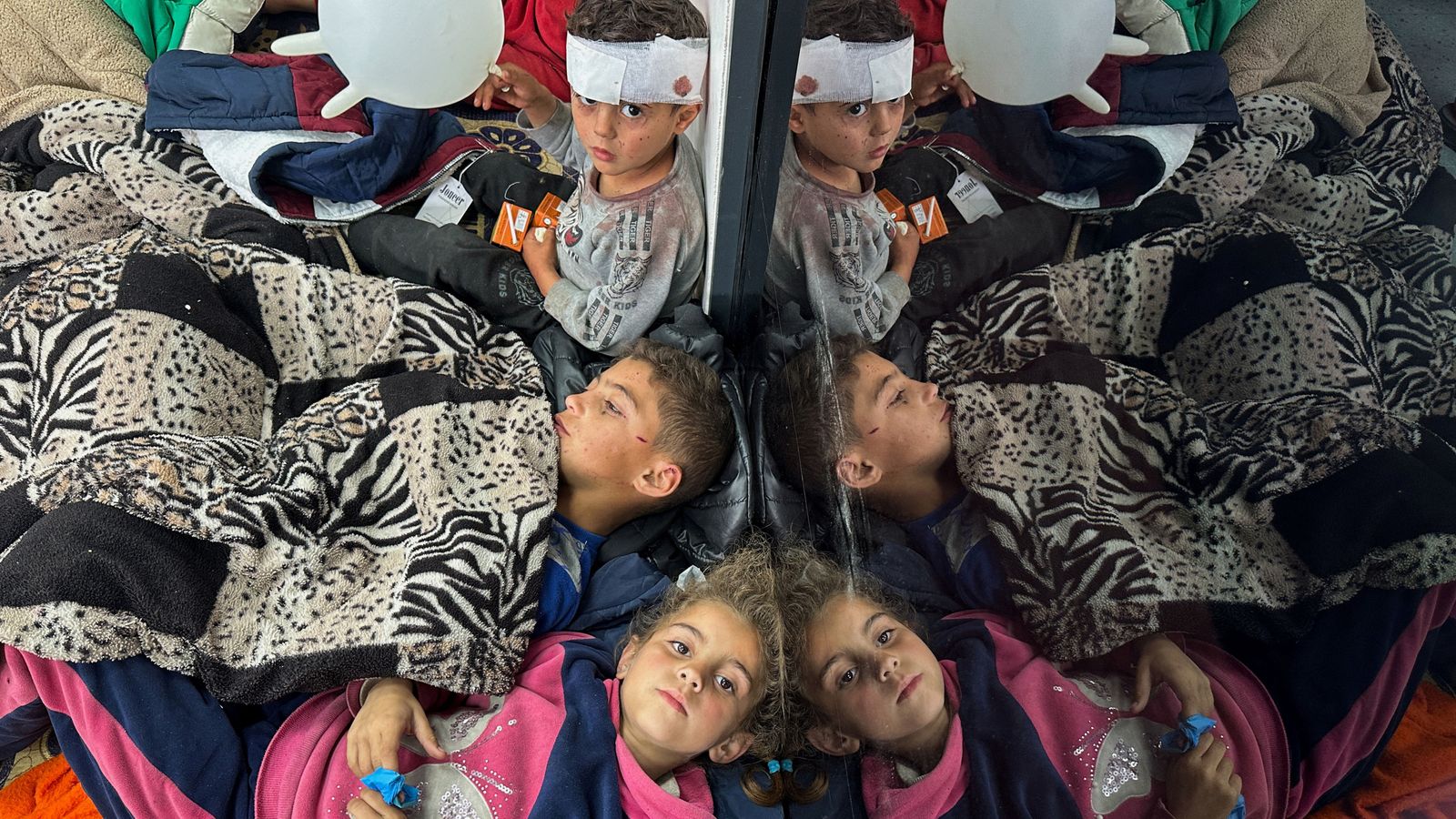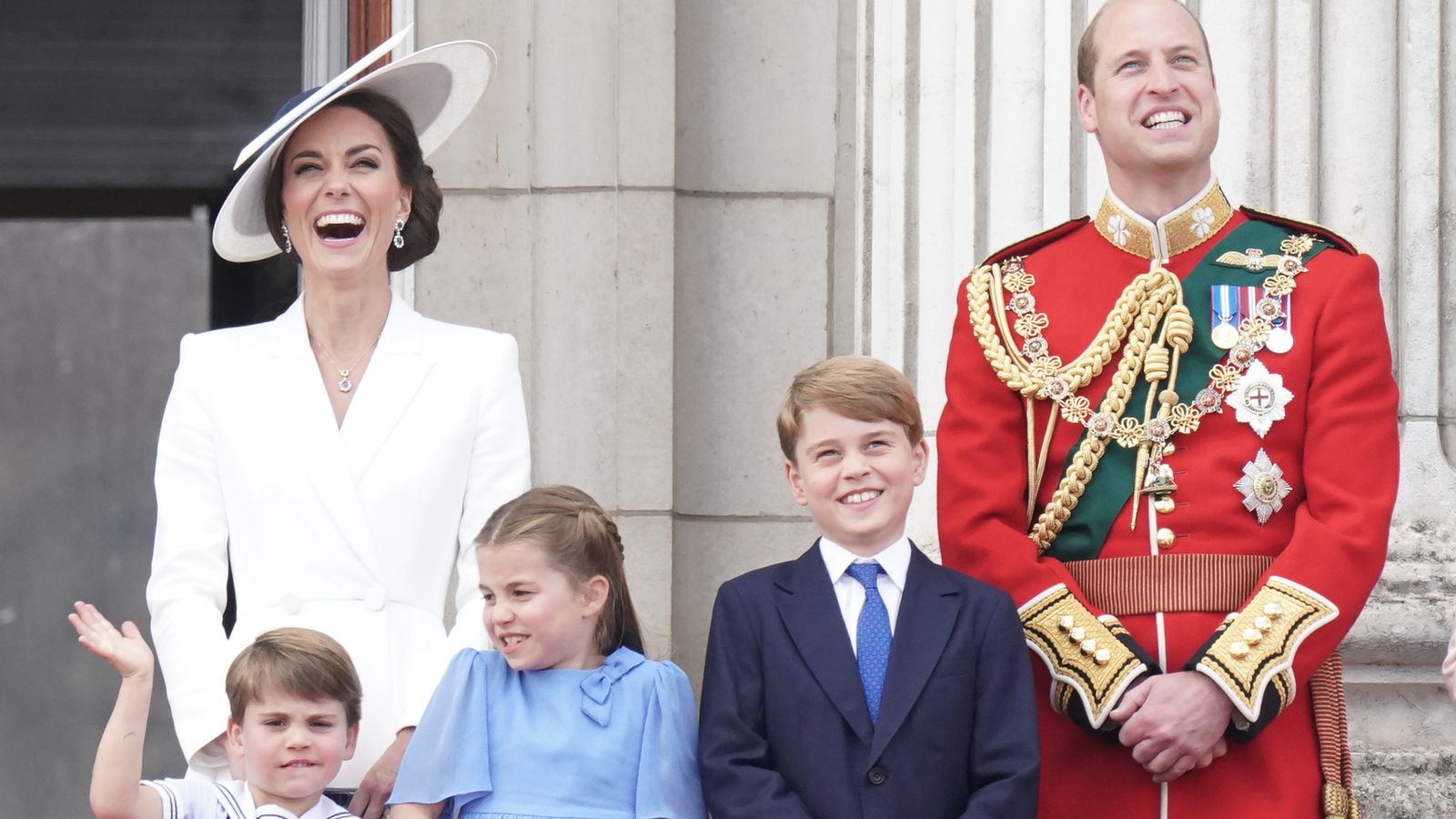More than a million Palestinians sheltering around the southern city of Rafah are braced for an offensive by the Israeli army, with nowhere left to flee inside Gaza.
Prime Minister Benjamin Netanyahu’s says his office has ordered the Israel Defence Forces (IDF) to develop a plan to evacuate the city and destroy four Hamas battalions it says are deployed there.
Where is Rafah and what is the situation there?
The city of Rafah is located in the south of Gaza, right on the border with Egypt.
After Israel began its intense bombardment of the densely populated strip in the wake of the Hamas’s 7 October attacks, Mr Netanyahu told people in Gaza to evacuate to “safe zones” in the south of the territory – with 1.4 million Palestinians now thought to be sheltering in Rafah.
There is now no obvious place to go and aid agencies have warned that many people could be killed.
Why is Israel targeting Rafah?
Military analyst Major General Charlie Herbert told Sky News that after operations in northern Gaza, Gaza City, central Gaza, and Khan Younis, the IDF was turning its attention to Rafah, and the Hamas battalions it claims are there.
“Israel seeks to destroy or defeat the remaining elements of Hamas, but they’re also after the senior leadership of Hamas, where they haven’t had any success yet,” Maj Gen Herbert said.
“They’re going to persevere until they do that.”
Turning to what this means for the displaced Palestinians thought to be sheltering in the city, Maj Gen Herbert said “there’s nowhere obvious for them to go”.
“There’s been huge international condemnation at the moment about this imminent offensive by Israel and no obvious plans by the IDF as to how they’re going to cope with these numbers of civilians,” he explained.
Please use Chrome browser for a more accessible video player
Is there a plan for evacuating civilians?
In an interview aired on US network ABC on Sunday, Mr Netanyahu reiterated that Israeli forces would assault Rafah but insisted they were preparing “a detailed plan” for where civilians there could go.
“We’re going to do it. We’re going to get the remaining Hamas terrorist battalions in Rafah,” he said, adding: “We’re going to do it while providing safe passage for the civilian population.”
However, others have cast doubt on the existence of a plan to evacuate civilians – or if one is actually possible.
Military analyst Professor Michael Clarke told Sky News that the offensive was days, or possibly weeks away.
He added: “They say there is (a plan) but we haven’t seen what that plan may consist of.
“Most people think that this plan is more of a slogan than a real plan at the moment.”
Prof Clarke said that negotiation, rather than military action, was “undoubtedly the best way to get more hostages out”, despite an Israeli special forces raid that saw two hostages rescued.
Read more:
Inside narrow passages leading to sinister ‘hostage cell’
Israel faces calls for football ban from Middle East
What do other world leaders and politicians say?
US President Joe Biden has reportedly become frustrated over Mr Netanyahu’s failure to shift tactics in Gaza – where more than 28,000 people have been killed by Israeli forces, figures from the Hamas-run health ministry indicate – and his reluctance to pursue a long-term peace deal.
On Sunday, he warned Mr Netanyahu against sending troops into Rafah without a “credible” plan for protecting civilians. Mr Netanyahu vowed to press ahead with an expected ground offensive.
UK foreign secretary Lord Cameron says the UK is “very concerned” about the situation in Rafah and called for Israel to “stop and think seriously” before taking further action.
Meanwhile, two Egyptian officials and a Western diplomat said Egypt had threatened to suspend its peace treaty with Israel if troops were sent into Rafah, where Egypt fears fighting could push Palestinians into the Sinai Peninsula and force the closure of Gaza’s main aid supply route.
The peace treaty dates back nearly 50 years to the Camp David Accords, a cornerstone of regional stability.








